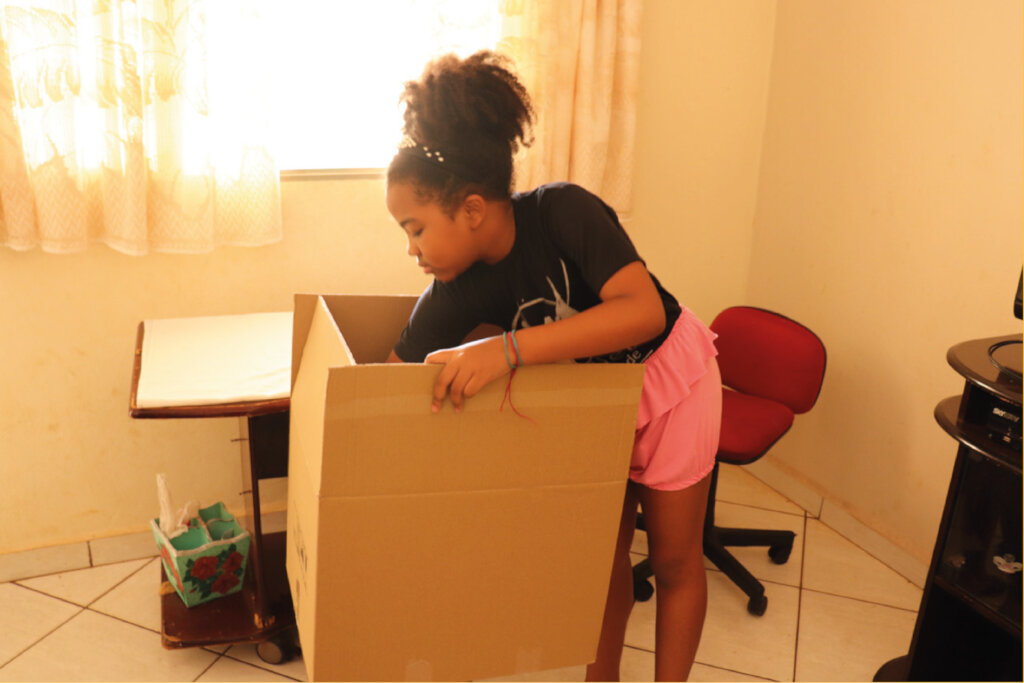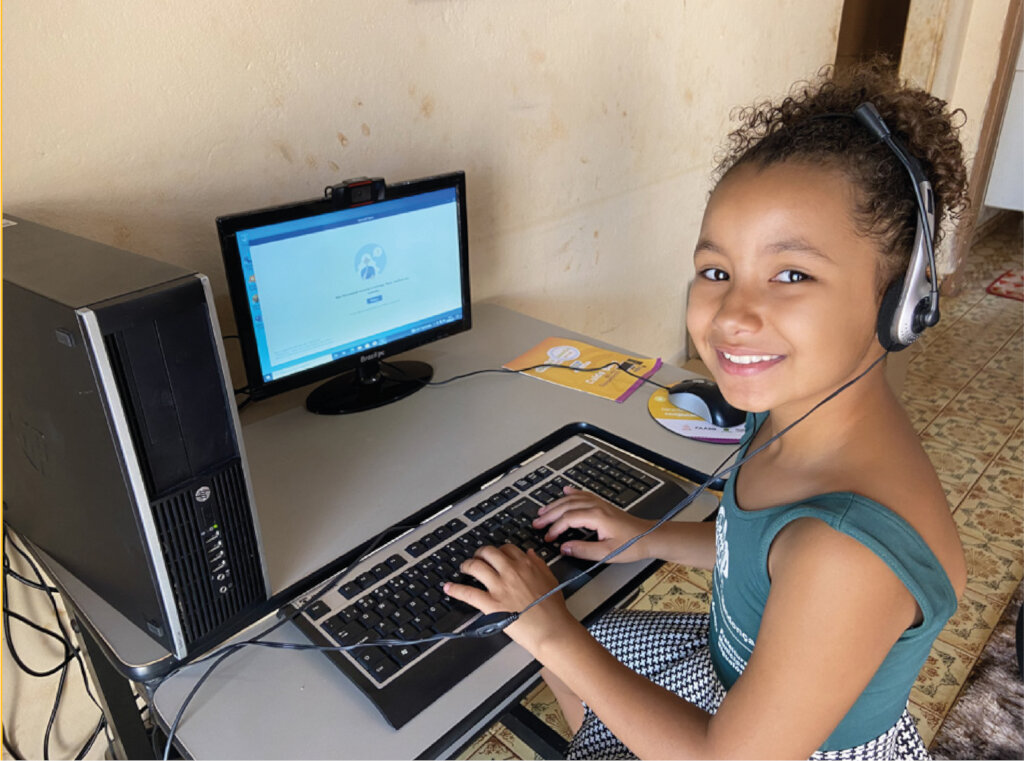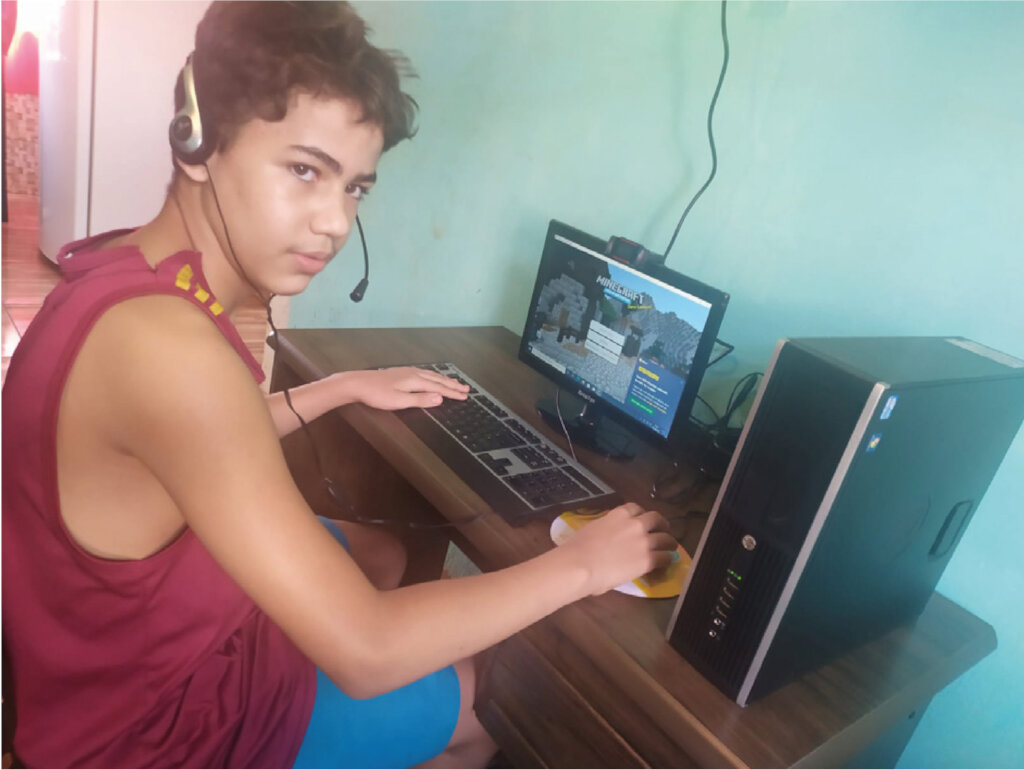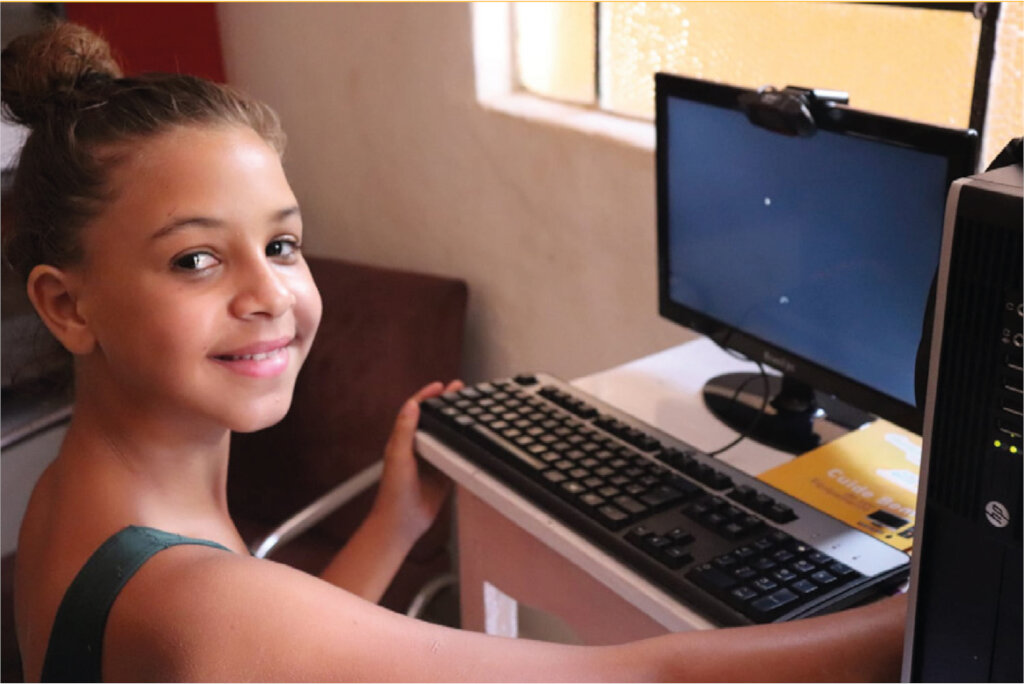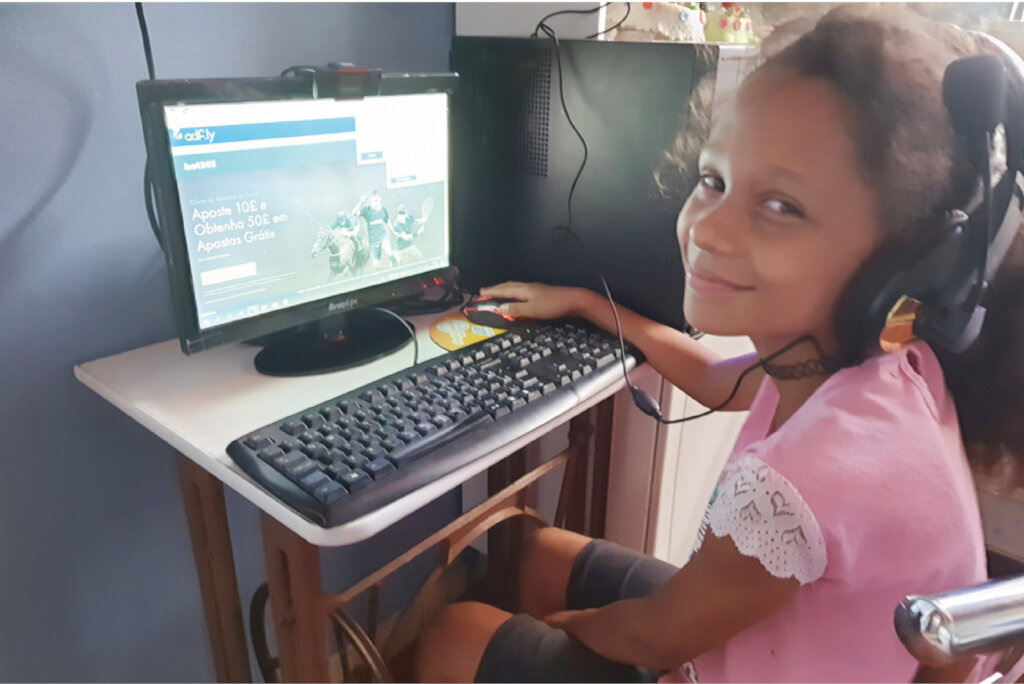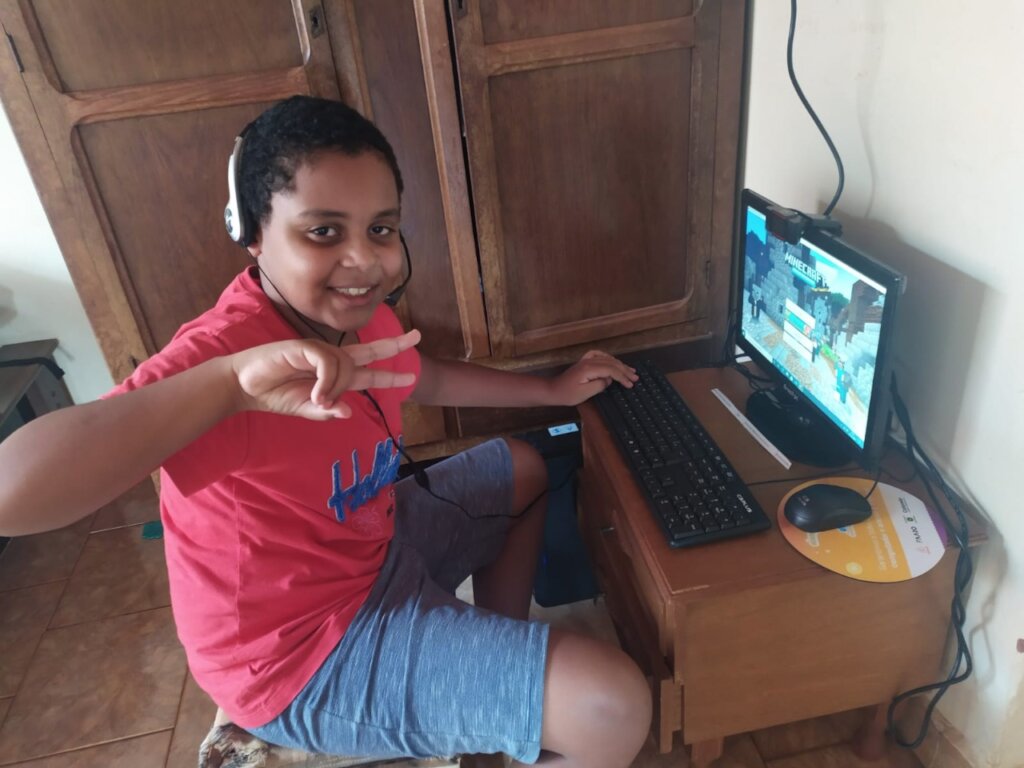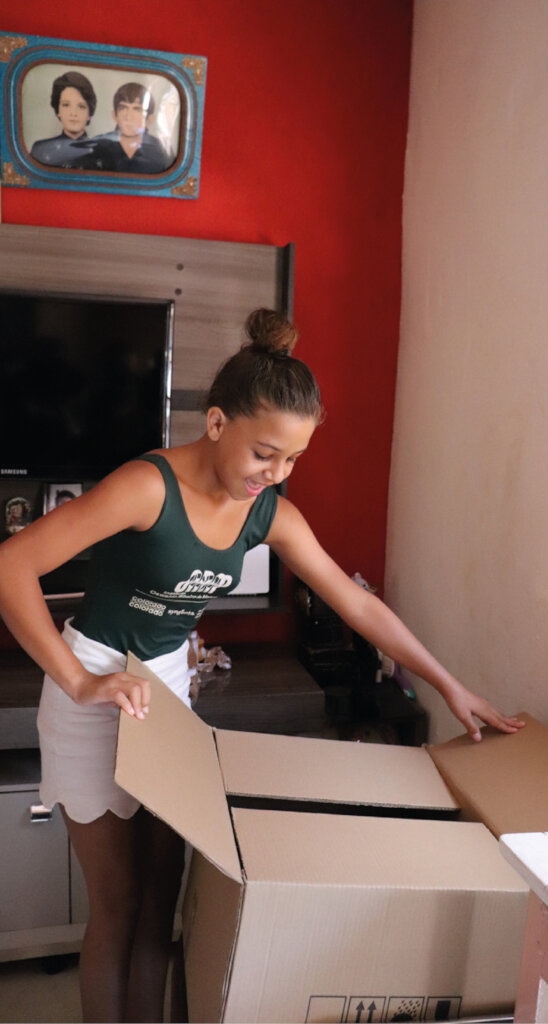By Josymara Ribeiro de Mendonca | Project Leader
The Institute Oswaldo Ribeiro de Mendonca – IORM has distributed 252 computers with internet access to the project’s students in the cities of Miguelópolis, Ipuã, Orlândia and Guaíra until May 10th 2022.
The initiative is part of the Project Education is Connection – Internet For Everyone that aims to ensure the internet access to children, teenagers and young adults in situations of social vulnerability.
The computers arrived at the student’s houses during the Covid-19 Pandemic in Brazil, which demanded the maintenance of social distancing.
The computer access is fundamental for equity and guarantee the class content and friends contact for the students, something important to maintain the bounds.
The first students benefited from the action were the IORM Miguelópolis unit, in September 2021. 81 computers have been distributed to 85 project students.
The second city to get the action was Ipuã, in October 2021. 47 computers with internet access helped 60 students.
In Orlândia, the distribution started in November of 2021. Has been delivered 93 computers, benefiting 107 students in the city.
In Guaíra, the equipment distribution started in March 2022. 31 computers have been delivered, supporting 35 students. And 10 computers are still on hold to be delivered.
The difference in the numbers of computers and children is due to the fact that there’s brothers and sisters whom are part of the Project and, in this case, the IORM delivers only one computer per home.
The campaign had the accession of the financial institution Itaú Unibanco who donated 262 semi-new computers. The IORM has a Volunteer corp in information technology field, collaborators of Colorado Machinery and Colorado Leases, responsible for the equipment analysis, that precedes the delivery. Before getting into the students' home, the package which contains CPU, monitor, microphone, camera, goes through the installation of Office package and Minecraft Education, the electronic educational game.
The IORM team makes the installation and provides guidance to each student by the first access. Each family receives a manual book created by IORM, with orientations about the use and care of the equipment.
In addition to the equipments, IORM donated internet access to families with no conditions to sign up the service. That was the case of 5 homes in Miguelópolis, 5 in Ipuã, 4 in Orlândia and 1 in Guaíra.
Student Profiles
Student profiles assisted by IORM shows that Project Education is Connection has been the tool of digital inclusion.
It’s rare the national initiatives of public politics that guarantees the continued access to children, teenagers and young-adults to the internet.
In Miguelópolis, 42% of students' families assisted has a house income of up to 1 minimum wage.
Others 35% has income of up to 2 minimum wage;
22% of the families have up to 3 minimum wage.
Just 1% of the families have incomes of up to 4 minimum wage and none of the families has the income above five minimum wage per month.
Still in Miguelópolis, 32% of the children who got the donation has the age between 7 and 8 years old;
28% has between 9 and 10 years old;
16% has between 11 and 12 years old;
15% has between 13 and 15 years old and 9% has between 16 years old or more.
In Ipuã, families with the income up to 1 minimum wage correspond to 39% of the benefited.
Families with income up to 2 minimum wage represents 32%.
And the ones with up to 3 minimum wage makes 28% of the families benefited by the project.
And those with income up to 3 or 4 minimum wage are just 1%.
Not a single family has the income up to 5 minimum wage per month.
Students has the age between 7 and 8 years old, corresponding to 23% of the benefited.
Students between 9 and 10 years old represents 34% of the donations received and between 11 and 12 years old matches the 30% of benefited.
Teenagers with age between 13 and 15 years old are 12% who got the donation and the ones between 16 years old or older just 1%.
In Orlândia, 5% of the families assisted by the Project have the income up to one minimum wage.
The families with income up to 2 minimum wage are 43%.
The other 41% has the income up to 3 minimum wage.
The income between 3 and 4 minimum wage is 11% if the families and none of the families has the income more than 5 minimum wage.
Among students, 14% benefited are between 7 and 8 years old.
Between 9 and 12 years old matches with 36%;
between 11 and 12 years old, 25%.
Teenagers between 13 and 15 years old represents 19% of the benefited in Orlândia and the ones above 16 years old, 6% of the total number of students assisted by the project.
In Guaíra, 4% of students' families assisted has a house income of up to 1 minimum wage.
Others 23% has income of up to 2 minimum wage;
19% of the families have up to 3 minimum wage.
Just 14% of the families have incomes of up to 4 minimum wage and none of the families has the income above five minimum wage per month.
The students has the age between 7 and 8 years old, corresponding to 22% of the benefited.
Students between 9 and 10 years old represents 25% of the donations received and between 11 and 12 years old matches the 8% of benefited.
Teenagers with age between 13 and 15 years old are 14% who got the donation and there’s no one above 16 years old being assisted by the project.
Project reports on GlobalGiving are posted directly to globalgiving.org by Project Leaders as they are completed, generally every 3-4 months. To protect the integrity of these documents, GlobalGiving does not alter them; therefore you may find some language or formatting issues.
If you donate to this project or have donated to this project, you can receive an email when this project posts a report. You can also subscribe for reports without donating.
